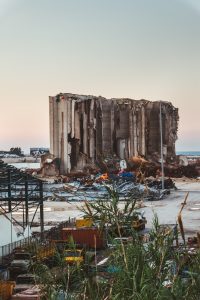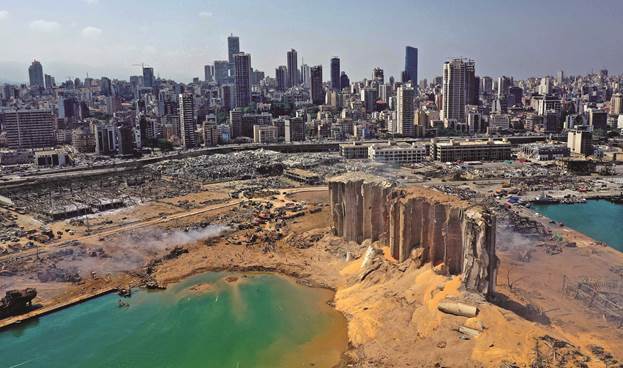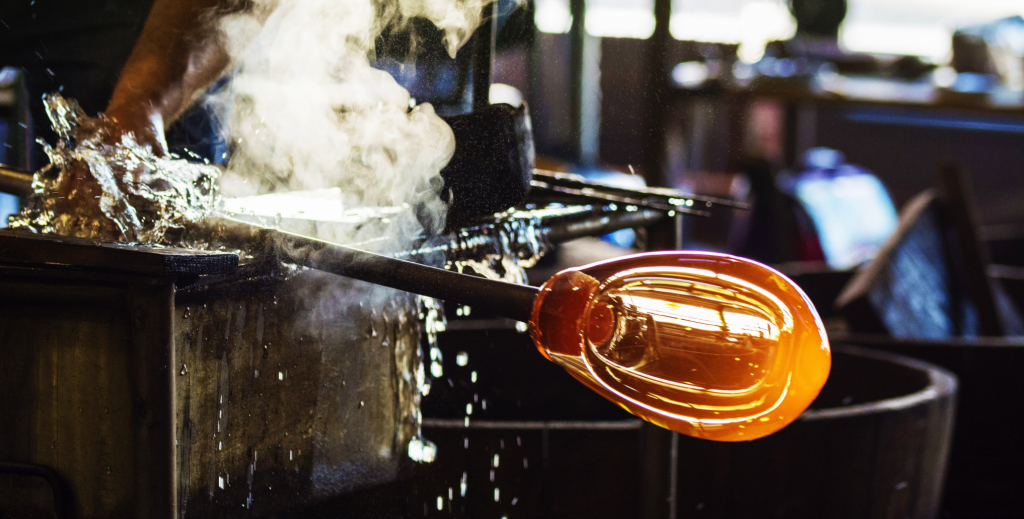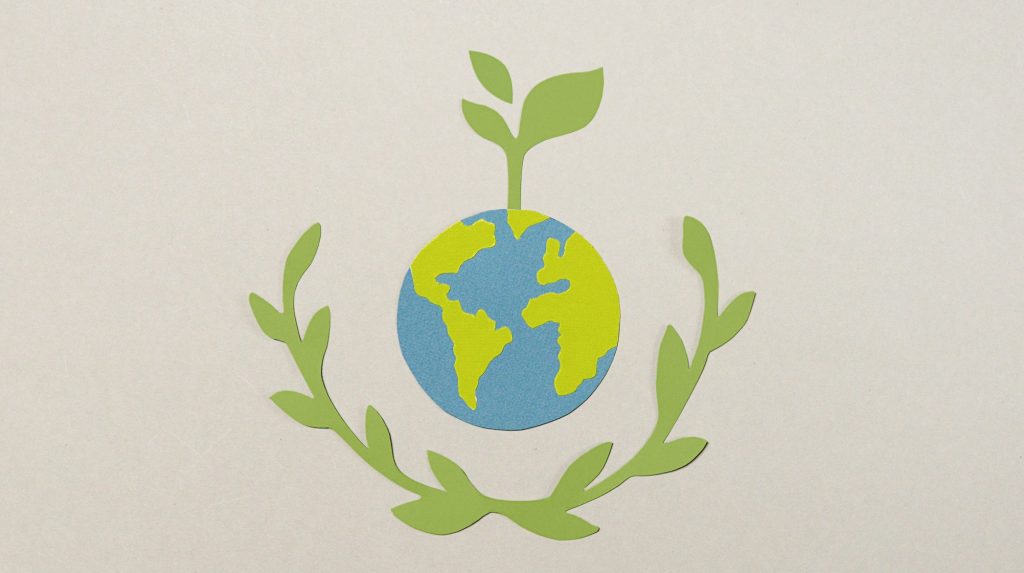“Paris of the Middle East,” “Switzerland of the Middle East” and sometimes “The Pearl of the Middle East,” Lebanon is unlike any country in the region. Over the decades, it built a reputation as the place Arab elites and the middle class visited for its history, nightlife, fashion, scenery and cultural freedom, not to mention food. “From colony to couture, no other Middle Eastern city has proved to be a hub of art and fashion quite like Beirut,” wrote travel blogger Amani Sharif in Culture Trip in 2017. “War-torn and tired [from a civil war that lasted 15 years], the people of Beirut show they can turn tragedy into cultural innovation.”
However, by mid-2019, Lebanon’s economy was crumbling. In March 2020, the government locked down the country to curb the spread of COVID-19, with grave economic consequences. Then a massive August explosion leveled Beirut’s port and exposed deep corruption. “Lebanon is no longer on the brink of collapse. The economy of Lebanon has collapsed,” said Fawaz Gerges, professor of international relations at the London School of Economics, to the Washington Post in July. “The Lebanese model established since the end of the civil war in 1990 has failed.”
The country desperately needs harsh structural reforms, and Lebanon’s government can’t do it alone. But its potential supporters have reservations. “We are ready to redouble our efforts. But we need unity of purpose in Lebanon — we need all institutions to come together, determined to carry out much-needed reforms,” said IMF Managing Director Kristalina Georgieva, as Reuters reported in August. “Commitment to these reforms will unlock billions of dollars for the benefit of the Lebanese people. This is the moment for the country’s policymakers to act decisively. We stand ready to help.”
To successfully implement reforms, Lebanon must upend its political and economic systems to create a sustainable economy. “The [IMF] plan is more ambitious than its never-implemented predecessors,” wrote Jeffrey Feltman, John C. Whitehead Visiting Fellow at Brookings Institution, in a blog in May. “Previous governments [were] fearful that IMF intrusiveness would reveal the true extent of Lebanon’s underlying rot.”
Investor unfriendly
In its 2020 Doing Business report, the World Bank ranked Lebanon 143 out of 190 countries. The country’s rank has deteriorated steadily since 2010 when it was at 103. Breaking down the score, Lebanon ranked highest in registering property (110), protecting minority investors (114) and paying taxes (116). Its worst ranks were in starting a business (151), trading across borders (153), resolving insolvency (151) and dealing with construction permits (164).
Lebanon’s GDP has been shrinking since the end of 2017, reaching minus 5 percent by the end of 2019.
A June UNDP report said Lebanon’s economic woes stem from “regional crises, political instability, and tension in the country since 2011 resulting in slow growth and lack of resources to recover from difficult situations.” The document explained how sluggish GDP growth and “insecurity” encouraged enterprises to cut new investments, making them “unable to absorb more employment,” said the report. “Informal employment started to spread and became the main feature of economic instability.”
Unsustainable Lebanon
Lebanon’s unsustainable economic model was born when the government pegged the local currency (lira) to the dollar in 1997. The country uses both currencies interchangeably in everyday dealings. “Over the past two decades, the stability of the Lebanese economy depended on a fixed exchange rate to the U.S. dollar,” wrote Tatiana Koffman, a columnist at Forbes, in July.
That fixed exchange rate and interchangeable use of both currencies made Lebanon an attractive destination for tourists from Arab countries and Europe. According to Kenoma, a research firm, tourism accounts for 19.1 percent of Lebanon’s GDP. Meanwhile, the absence of exchange rate risks encouraged expats to send money back to their families. Currently, remittances account for 14 percent of GDP, according to the World Bank. That money helped spur consumption, including buying property, and deposits in banks rather than converting it to liras, noted Koffman.
Ben Hubbard, Beirut bureau chief for The New York Times, noted in a May op-ed that the peg and high interest rates on dollars relative to other MENA countries made Lebanon a prime destination for wealthy Arabs to deposit their greenbacks. That money became the country’s primary source of foreign currency,” he wrote.
To attract more visitors, the government started building high-end properties and cultural venues along with a thriving nightlife and plastic surgery industry. Lebanon became the “plastic surgery mecca in the Middle East,” reported Melissa Twigg of the Business of Fashion website in 2017. At the time, Lebanon was one of the top five countries in plastic surgery procedures per 1,000 residents. Twigg noted the cost of such surgeries was half those performed in Europe and North America.
Lebanese citizens also fueled the country’s party-centric and high-end lifestyle culture. “Lebanese have long stood out in the Middle East for not letting political upheaval or civil violence get in the way of enjoying the finer things in life,” wrote Hubbard. “Nightclubs and hotels stayed open though wars, and while tap water was undrinkable and the electric grid unreliable, even the middle class could afford nice clothes, low-paid maids from Ethiopia or the Philippines, and occasional foreign vacations.”
As a result, Lebanon’s economy put too much stock in services and real estate that targeted foreigners. “Lebanon did not develop self-sustaining domestic industries, like many of its neighbors,” reported Koffman in July.
According to the World Bank, Lebanon imports are six and a half times more than exports. The majority of exports are jewelry, base metals, fruits and vegetables, and tobacco that go to the Gulf Cooperation Council countries, Jordan, Syria and Iraq. According to Nordea, a financial services group in Europe, Lebanon imports about 80 percent of its consumables including oil, meat and grain, among other staples.
Invariably, the state’s spending was more than its income. “The government has relied on increasing amounts of debts to pay its bills,” noted Hubbard. According to Lebanon’s central bank, the debt-to-GDP ratio increased steadily from 2012-2018, going from 131 to 151 percent. The bank has yet to update that figure, though some online portals estimate it was more than 160 percent of GDP last year.
 Chain of crises
Chain of crises
Lebanon’s economic woes started when the upheaval in Syria began hurting tourism in neighboring countries. By March 2019, for the first time in its history, Lebanon’s government defaulted on $1.2 billion worth of Eurobonds. “That pushed officials to engage in creative financial engineering to keep the lira stable,” noted Koffman.
In July, Lebanon’s central bank raised interest rates to 14 percent on dollars deposited for three years, reported Reuters. “At least it will stabilize the reserves because what we are passing through is a deterioration of confidence and the main task of the government now is to be able to restore confidence,” Marwan Mikhael, head of research at Blominvest Bank, told Reuters at the time.
In August, Fitch downgraded Lebanon’s credit rating from B- to CCC, citing increasing pressure on Lebanon’s financing model. S&P kept its rating, but changed the country’s outlook to negative, stressing that a downgrade in the next 12 months is possible.
By October 2019, the central bank ordered commercial banks and money transfer companies, including Western Union, to pay customers in lira, even if transfer orders are denominated in dollars. “That was the first red flag of a looming currency crisis,” noted Koffman. Weeks later, the central bank closed all commercial banks, effectively freezing credit to businesses until “normalcy is restored,” Salim Sfeir, chairman of the Association of Banks in Lebanon and of Bank of Beirut, told Reuters. Economist Mohammad Akkaoui of the Beirut-based civic organization Kulluna Irada told Asia Times, “The fact that banks are closed is a telltale sign they’re afraid of a bank run happening. And this should be a major concern.”
That move created a dollar black market, despite the official exchange rate rising from 1,507 liras to the dollar to around 3,900 in July. In the black market, the greenback was selling for 8,000 liras, reported Al Arabiya.
That foreign currency supply crisis caused a partial shutdown of the economy, as businesses closed and jobs were lost. By November, the World Bank warned Lebanon’s poverty rate could rise from 30 to 50 percent of the population.
Then came the coronavirus. In March 2020, the government shut down the entire economy to curb the spread of COVID-19. “Many businesses [laid] off staff or put them on furlough without pay; the gap between the Lebanese pound’s (lira’s) value on the official and black-market exchange widened; and banks tightened capital controls,” reported the BBC.
The economic situation didn’t improve when the government gradually relaxed lockdown restrictions. “Many emerged from quarantine with no job prospects and no funds to buy necessities. As Lebanon runs out of fuel, citizens experience blackouts up to four days a week,” wrote Koffman. “And with a shortage of dollars to import grain and meat, Lebanon is facing famine.” Reuters reported Lebanon’s inflation rate was “112.4 percent year-on-year in July,” compared to an annual rate of 89.74 percent in June and 56.53 percent in May.
In August, a massive explosion leveled Beuirt’s port and homes within a 10-kilometer (6.2-mile) radius. Its shockwave was felt in Turkey, Syria and Palestine, and heard in Cyprus. Six days later, Prime Minister Hassan Diab blamed “a system of corruption … deeply rooted in all functions of the state” and resigned along with the government. “Corruption cases were widespread in the country’s political and administrative landscape… pose a great threat, [and] are protected by the class that controls the fate of the country,” he added.
Diab estimated damage from the explosion at $10 billion to $15 billion–a massive blow for a country whose fiscal deficit was $5.83 billion and GDP $56.9 billion at the end of 2019, according to the World Bank.
Hard to reform
Those extensive losses only add pressure on the government to seek assistance from international financial institutions, such as the World Bank and IMF. Diab’s government had been negotiating with the IMF since May to secure a $10 billion loan.
The main stumbling block has been implementing structural economic reforms. The IMF called for auditing the central bank, appointing a strong interim government and elections within a year. “The IMF is exploring all possible ways to support the people of Lebanon,” Georgieva said in August. “It is essential to overcome the impasse in the discussions on critical reforms and put in place a meaningful program to turn around the economy and build accountability and trust in the future of the country.”
Incumbent corruption is a significant factor in stalling reforms. “The classical political class, opposition included … aren’t very much happy with the entire process,” Joseph Bahout, an academic fellow in the Middle East program at the Carnegie Endowment for International Peace, told Voice of America News in July. “They know that this kind of reform operated by the IMF will also hit their own interests in the country. So no one wants exactly to go to the IMF, except maybe certain technocrats.”
Developing a domestic reform program, similar to what Egypt did in late 2016 to secure a $12 billion loan from the IMF, is tricky. Lebanon’s constitution decrees that five of the country’s 18 sects must hold high-level government positions. The president must be a Maronite Christian, the prime minister Sunni Muslim and the Parliament speaker Shia Muslim. Ministers, by law, must come from all 18 sects. Meanwhile, Parliament has quotas for all factions with the number of seats for each determined by how that sect performs during elections.
Analysts believe any successful reforms must benefit all sects, which nearly never happens. One reason is that one of the most prominent factions is Hezbollah, which since 2012 has been classified as a terrorist group by the United States, United Kingdom, Germany, Arab League and Israel.
Core change
Given the urgent need to pass structural reforms, many argue that the state must nullify the 1989 agreement that stopped the Lebanese Civil War and created the current ruling system. “It’s time for different politics in Lebanon,” said David Schenker, assistant secretary of state for Near Eastern Affairs, during a press event at the U.S. Embassy in Beirut in early September.
A few weeks later in a televised speech, Lebanese President Michel Aoun called for constitutional amendments that abolish the obligatory representation of all of Lebanon’s sects in the government. “I suggest making the first step … by canceling the sectarian distribution of the ministries,” he stressed. “No sect has the right to monopolize a cabinet portfolio.”
However, issuing statements about reforming the political system won’t be enough to convince international partners — including the World Bank, IMF and United States, among others — to support Lebanon’s economy. “Lebanon needs to first prove it can implement the reforms and then talk later to external actors about support,” stressed Feltman.







